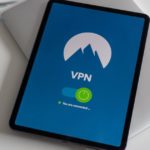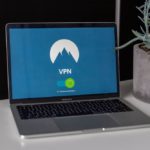In Australia and around the world, more of us are choosing to use VPNs to enhance our online security. Virtual Private Networks (VPNs) exist to hide your IP address and keep your online activity, including the sites you visit and what you do there, safe from any prying eyes.
Cyber-criminals, businesses, and governments all have their own reasons for snooping on people’s online activity, and even in Australia we are not immune to this. Investing in a strong VPN is the best way to stop the snooping.

The Australian government – which is a member of the Five Eyes Alliance – is one of those governments that spies on its citizens, and that likely includes you, my fellow Aussie.
This article provides a list of the best VPNs you can use for free to stop your online activity being observed by others. We’ve also included a quick buyer’s guide and an FAQ so you’ll be fully informed about all you need to know before you make your VPN choice.
1. ProtonVPN Free
If you’re dead set on getting a free VPN, ProtonVPN’s free offering has to come top of the pack. ProtonVPN is a highly-respected name in the VPN world, and their paid VPN is one of the better options on the market.
Thankfully, their free version, even if it’s not quite as good as the paid one, is still of high quality. Notably, it features a completely unlimited data allowance, which is extremely good for a free VPN, most of which carry fairly stringent limits on data usage.
In fact, as far as we’ve been able to tell, no other free VPN worth considering can offer this, which is a huge win for ProtonVPN.
When it comes to streaming, you’ll find that it’s okay for getting past some region locking, but not everything. For instance, we had no problems using it on region locked YouTube videos, but found that it didn’t help to unblock foreign Netflix libraries.
It will only allow you three server locations, unfortunately, and you might find that the speeds get worse around peak time (since the company’s paying customers get priority). You’ll also only be able to use the VPN on one of your devices. If you were planning on using it on your phone and your computer, then you’ll be out of luck.
Nevertheless, despite these drawbacks, you will struggle in Australia to find another free VPN that will offer you as much as ProtonVPN’s free version. If you like how Proton works, you can then later upgrade to the paid version which does give a superior service.
Editor’s note: Before choosing the free version of ProtonVPN, we recommend reading our review of the paid VPN service.
2. Privado VPN
ProtonVPN’s free version might be the best free VPN around, but this one is a decent challenger to that title. It can’t boast an unlimited data allowance, but it does offer 10 GB per month, which is a fairly large amount.
It might not be enough if you’re going to be using it intensively, but for light to moderate use, that might be enough for you.
The speeds are acceptable, but not exceptional. They’re certainly good enough for a free product, though, unsurprisingly, there are several paid VPN options that will give you better speeds.
Usefully, Privado’s Australian VPN service does boast a kill switch, which is a useful safety feature that disconnects your device from the internet when the VPN connection is lost. This means your internet traffic will never be unsecured.
Its eight different available servers are pretty impressive for a free VPN, though, naturally, they pale in comparison to the hundreds or thousands of servers that paid VPNs offer you.
3. Hide.me
Hide.me is another great VPN that offers a very respectable paid version. Just like Privado VPN, it will allow you 10Gb of data per month, which, as we said, will be enough for light to moderate use, if not anything beyond that.
Unlike Privado, however, the free version of Hide.me can boast 24/7 live chat support. This is pretty impressive, especially when you consider the fact that even some paid VPN services don’t offer this. It means that if anything goes wrong, you’ll have a direct line to get it fixed at any time.
It’ll also offer you good speeds. Again, they won’t be lightning-fast, but that’s not something you can really expect from a free VPN.
It also has a kill switch for extra security, along with several other additional features that most other VPNs, certainly free ones, don’t have. These include multiple protocols, customizable favorites lists for servers, and various other things.
Again, if you like it, you can think about upgrading to Hide.me’s paid version. This might be worth it, since the free version only gives you five different servers to work with.
This is an improvement on, for example, the three servers that ProtonVPN offers, though not quite as good as Privado VPN’s eight.
Editor’s note: Hide.me offers a compelling free and paid VPN for Australian internet users. Read our review of the paid Hide.me VPN service here.
4. Windscribe
Windscribe is another VPN service that does not have great brand awareness in Australia, but is actually offers a pretty solid free option that is worth considering. It’s actually pretty good.
You’ll get the same 10 GB of data allowance per month as with the last two free VPNs we talked about (Privado and Hide.me), which, as stated before, should be enough for light to moderate use.
It also goes a bit beyond most other free VPNs in its server choices – it’ll grant you ten servers to choose from. Of course, this doesn’t compare to any of the paid VPNs but for a free one it’s a pretty good deal.
They’re spread fairly evenly across the world, as well, which makes it a better bet if you’re away from the usual hubs of Europe and North America.
Another strong point in its favour is that it seems to be much better than most free VPNs (and even some paid ones) at accessing streaming services like Netflix. While we can’t guarantee that this will stay the case, given how streaming services consistently find new ways to shut VPN users out, it does a great job for a free service.
On the negative side, neither the free nor the paid version of Windscribe have 24/7 live chat support, so answers to your queries won’t necessarily be available immediately.
The app itself is also not all that good – the UI isn’t the most attractive or intuitive, and it can sometimes be difficult to find things. However, this isn’t a deal-breaker and you’ll get used to it before too long.
Editor’s note: Please check out our review of the paid Windscribe VPN service before making your choice of Free or Paid VPN service
5. Hotspot Shield Free
This free VPN offers a fairly generous data allowance, although in a slightly different way to the others on this list. Instead of giving you a set amount per month, Hotspot Shield Free instead gives you a limit of 500 MB per day.
On one hand, this gives you less flexibility about when you use your data.
On the other hand, it does add up to more than the 10 GB per month that seems to be standard elsewhere. In a 28-day month, you’ll get 14 GB altogether, for example.
The Australian speeds you’ll get from it are decent, although they’re noticeably slower than the ones you’ll get from the paid version (they do have to try to entice you to part with your money somehow, after all).
The last time we checked, the free Hotspot Shield VPN did not offer an Australian server (the paid version offers servers in 6 cities in Australia). The app will show you all the ones that you’d have access to if you were using the paid version. Even when you take into account that it’s free, this is a touch disappointing.
There is also a slight security concern with the company’s logging policy. It will collect certain information, such as the time you connect to the VPN, how much bandwidth you use, and more. This isn’t ideal if you’re main concern is online privacy and anonymity.
Editor’s note: Not sure of whether to go with the free or paid version of Hotspot Shield VPN, then read our review of the paid version before making your selection.
Buyer’s Guide
Security
The primary function of a VPN is to keep your information hidden from prying eyes whilst you use the internet.
Given that, security is usually the most important item to consider when you’re choosing a VPN, there are a few noteworthy attributes that contribute to a VPN’s security rating.
First off is the kind of encryption that it uses. The thing to look for is whether it uses AES-256 encryption. This is the gold standard for VPNs, and is also the kind of encryption that financial institutions and governments use to keep their information safe.
You might also want to look at other security features that the VPN may or may not offer. A fairly common one is a kill switch. This is a feature that will immediately disconnect your device from the internet instantly in the event that you lose your connection to the VPN. This might sound like an annoyance, but it’s actually a good thing.
Without it, losing the VPN connection would mean all your web activity would be unsecured, leaving your information exposed. A kill switch will prevent that from happening.
Streaming Services
Perhaps the second most prominent reason that people like to use VPNs is that they can be used to get around region locking restrictions, particularly on streaming services. You might have encountered this yourself. If you use Netflix, for example, you’ll only be able to access a certain library of content, while other countries will be able to access a different one.
Lots of Aussie TV viewers wish to watch things that aren’t available in Australia, and a VPN can help. Since VPNs give you access to servers around the world, you can simply pick one from another country and you’ll be able to access content locked to that country.
Or, at least, that’s how it’s meant to work. Not all VPNs are equally good at doing this, and streaming services are always attempting to come up with new ways to stop VPN users from accessing their content.
Some VPNs are better than others at getting around these blocks, so if you’re planning to stream a lot of content, this is one of the main things you’ll need to think about.
If streaming the Netflix content library ‘out of region’ is key to your choice of VPN, you should read our analysis of which VPNs do this best.
Speed
Speed is another major consideration, particularly if you’re a keen gamer or heavy streamer. A VPN will almost always slow you down a little, because the encryption processes that is used to mask your IP and hide your activity take time to apply.
You’ll also usually notice that if you connect to a VPN server that’s quite a long way away from your city in Australia (especially if it’s on another continent), the drop in speed will be more pronounced.

However, that’s not the only factor that affects it. Others include your own internet connection, how many other people are using the same server as you, and various additional considerations.
With that being said, some VPNs will offer better speeds – both in terms of being quicker and being more stable and reliable – than others. If you don’t need your VPN for anything data-intensive then this might matter less to you, but otherwise, it’s important if you want to avoid frustration.
Frequently Asked Questions
What Is A VPN?
VPNs are, in short, a way of keeping yourself and your information hidden online. They’re used by people who want to surf without being tracked or monitored. For example, if you were worried about someone else seeing what websites you visited or what you did at them, then using a VPN would be the perfect solution.
Likewise, while surfing, if you don’t want to be identified, your location can be changed and it won’t show up as where you are. All these things make them great when trying to protect your privacy. But they’re not just good for hiding your identity — they’ve been proven to help improve your internet connection too.
When you connect to a VPN, you can change the country code (IP address) that represents your computer; this gives you access to different servers based in other countries.
This means that even though your local ISP may block certain content because they don’t understand how to handle it, the server in another country has a better infrastructure to deal with it.
So instead of having nothing but problems connecting to YouTube videos, gaming sites, etc., you could have a much smoother experience throughout the day on many different networks.
Are Free VPNs Worth It?
The short, though not very helpful answer to that question is “it depends”.
There are countless VPN services out there these days, including both free and premium (i.e. paid) ones. As a general rule, a premium VPN will offer you more in terms of functionality than a free one, but at the same time, that doesn’t mean that all paid VPNs are better than all free VPNs.
Some paid VPNs don’t deliver on their promises, or simply offer so little functionality that they’re not really worth bothering with.
This means that, as long as you’re not expecting the full deluxe package, you can get some pretty decent use out of a free VPN. Note that this also includes free trials, which often do have the full functionality of the full version, albeit only for a limited time (usually between a week and a month).
Nevertheless, if you do want to go with a free option, be careful. Since it’s so easy to offer a free VPN service, plenty of them are of very low quality. It’s not hard to find buggy, ad-filled free VPNs, and you can never be sure what these shady operators are doing with your data either.
That said, there are good ones available, as you’ll be able to see above.
What Is The Five Eyes Alliance?
You might read about the Five Eyes (as well as Nine Eyes and/or Fourteen Eyes) Alliance when you’re reading about VPNs, but what exactly is that?
To put it simply, they’re alliances of various countries that share intelligence with each other, as well as spy on each other’s citizens to get around legal restrictions on spying on their own.
A government of a Five Eyes country might request information from a VPN provider about its customers, and that information might then be given to any other country in the alliance. This means that in theory, your information could end up anywhere.
The members of the Five Eyes alliance are the US, UK, Canada, Australia, and New Zealand. The Nine Eyes and Fourteen Eyes include these five countries, plus others that are their allies.
For this reason, it’s best if the VPN you choose is headquartered outside these countries. Some big names in the VPN world are based in places like Panama, the British Virgin Islands, the Seychelles, and other jurisdictions where privacy is robustly protected by law.
Final Thoughts
While free VPNs cannot, in most cases, stand up to premium versions, that doesn’t mean that they’re a total bust. This applies in particular if you use a free trial version of a premium product as a way of testing it out.
The options listed in this article are a great example – any of them would be a suitable option for an Aussie seeking a free but capable VPN. These VPN services will do a decent job in keeping you and your information safe from prying eyes.
- A 2022 Guide: How to Install a VPN on a School Computer - September 26, 2022
- The 6 Best Countries For VPN Connections While Browsing (2022) - August 23, 2022
- NordLynx Vs OpenVPN: Pros and Cons (2022) - August 22, 2022





